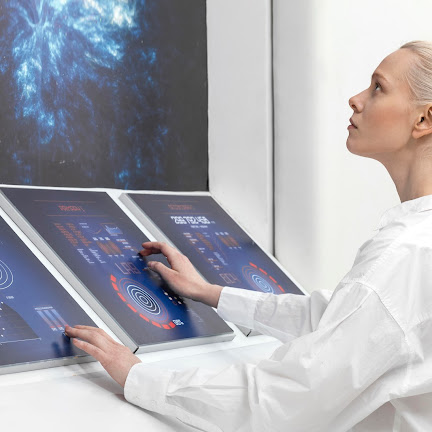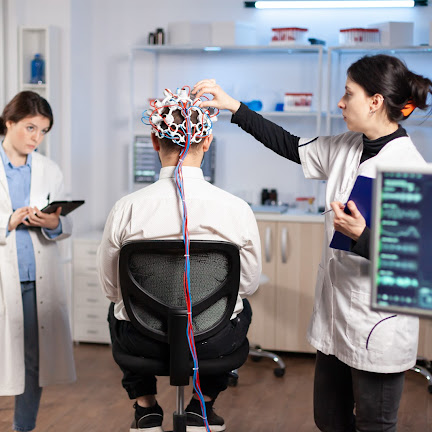Telemedicine Unleashed: Harnessing the Power of Cloud and Machine Learning for Remote Patient Monitoring
The Role of AI in Healthcare
Artificial intelligence has demonstrated significant potential in reshaping the healthcare sector, particularly in patient care. The applications of artificial intelligence in patient care encompass a wide range of functionalities, including disease prediction, personalized treatment plans, and early diagnosis of medical conditions. Through the use of AI algorithms, healthcare professionals can leverage real-time patient data to make informed decisions, leading to improved patient outcomes and enhanced clinical efficiencies.
Furthermore, AI plays a pivotal role in precision medicine, tailoring medical treatment and interventions to individual patients based on their genetic, environmental, and lifestyle factors. By integrating AI into healthcare systems, the delivery of precision medicine becomes more personalized and effective, ultimately improving patient satisfaction and treatment adherence.
Implementing Machine Learning in Healthcare Systems
Harnessing the power of machine learning offers numerous benefits to healthcare systems, particularly in the realm of remote patient monitoring. By leveraging machine learning algorithms, healthcare providers can utilize predictive analytics to monitor and anticipate patient health trends in real-time, enabling proactive interventions and personalized care plans. AI tools for remote patient monitoring enable healthcare professionals to remotely track and manage patient data, ensuring timely interventions and improving patient outcomes.
Moreover, the implementation of AI and machine learning in healthcare systems facilitates the automation of routine tasks, streamlining processes and optimizing resource allocation. Real-time patient data monitoring and predictive analytics supported by machine learning algorithms empower healthcare professionals to make data-driven decisions, thereby transforming patient monitoring and enhancing the overall quality of care.
Transforming Patient Monitoring with Cloud Technology
The utilization of cloud-based solutions has revolutionized remote patient monitoring, providing healthcare providers with the infrastructure to securely and efficiently manage patient data. Cloud technology enhances automation in remote patient monitoring by enabling seamless data collection, storage, and analysis. Furthermore, cloud-based solutions ensure the security and privacy of patient data, adhering to stringent healthcare data protection regulations and safeguarding sensitive information.
By capitalizing on cloud-based platforms, healthcare systems can effectively manage the massive amounts of data generated from remote patient monitoring, facilitating data-driven insights and informed decision-making. The integration of cloud technology in remote patient monitoring enhances scalability, flexibility, and accessibility, ultimately transforming patient care and improving healthcare delivery.
Use Cases of AI and Machine Learning in Telemedicine
The integration of AI and machine learning in telemedicine has yielded significant use cases, particularly in addressing population health and enhancing virtual care delivery. AI and machine learning technologies play a pivotal role in analyzing population health data, identifying health disparities, and designing targeted interventions to improve public health outcomes. Furthermore, virtual assistants powered by AI algorithms enhance telemedicine capabilities, offering personalized support, health education, and remote monitoring for patients, thereby improving the overall patient experience.
The role of AI in harnessing massive amounts of patient data in telemedicine is paramount, as it enables the extraction of valuable insights, patterns, and correlations from diverse healthcare data sources. By leveraging AI and machine learning, telemedicine platforms can offer personalized, data-driven recommendations for diagnosis and treatment, enhancing clinical decision support and improving healthcare delivery.
The Power of Technology in Remote Patient Monitoring
Technology has significantly enhanced remote patient monitoring, empowering healthcare professionals to deliver proactive and personalized care to patients outside traditional clinical settings. Remote monitoring supported by AI offers efficient data collection, analysis, and interpretation, enabling timely interventions and improved patient outcomes. By utilizing AI for enhanced decision support in telemedicine, healthcare providers can leverage data-driven insights to optimize treatment strategies and improve patient satisfaction.
Looking ahead, future trends in AI and machine learning for remote patient monitoring include the continued advancements in deep learning algorithms, AI-driven predictive modeling, and the integration of AI solutions with electronic health records. These technological innovations will further revolutionize remote patient monitoring, leading to enhanced patient care, better health outcomes, and a more efficient healthcare system.






0 Comments